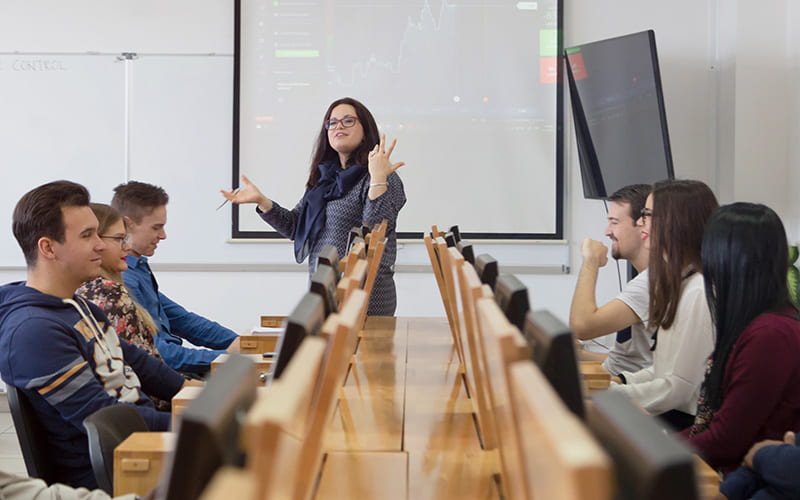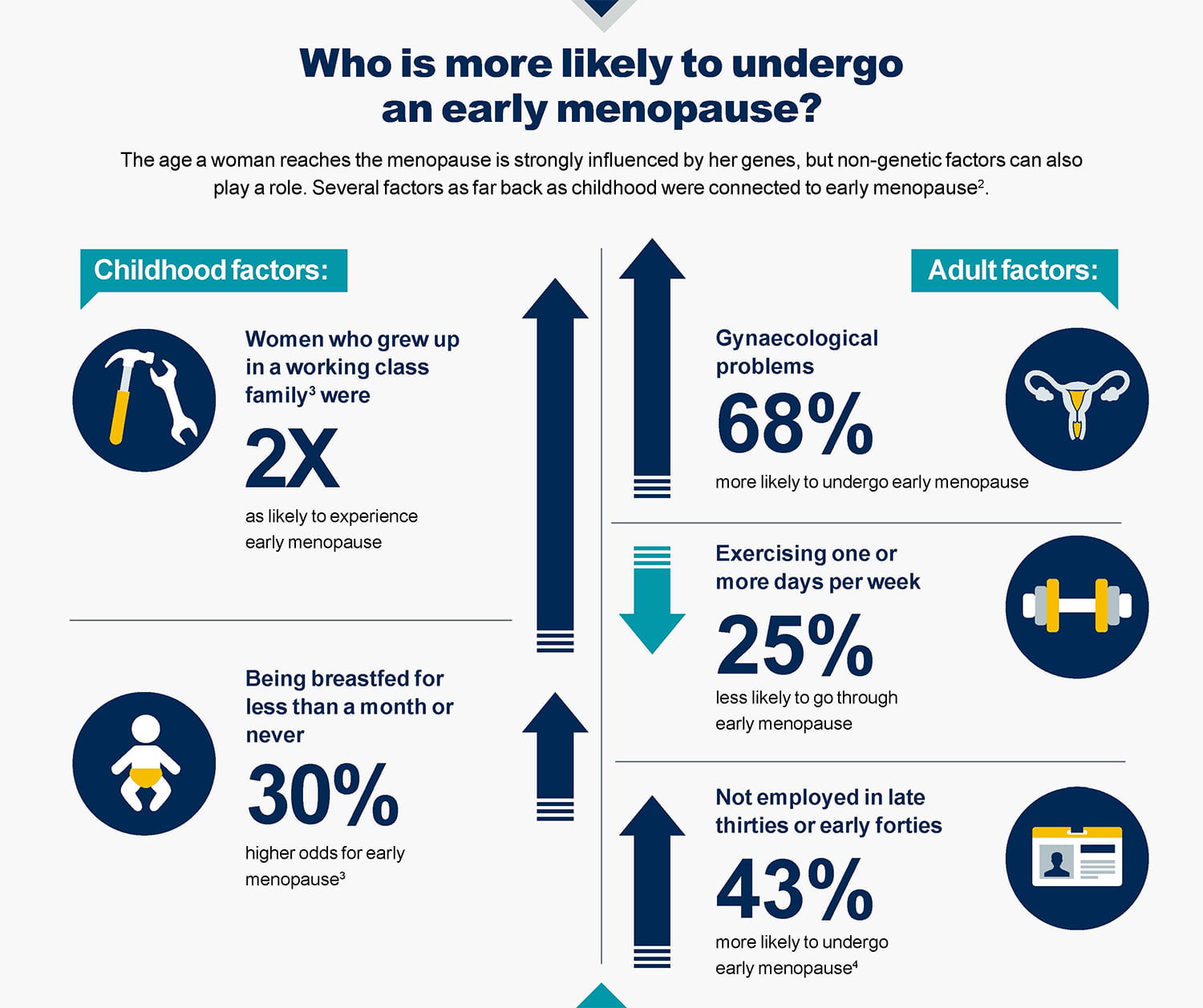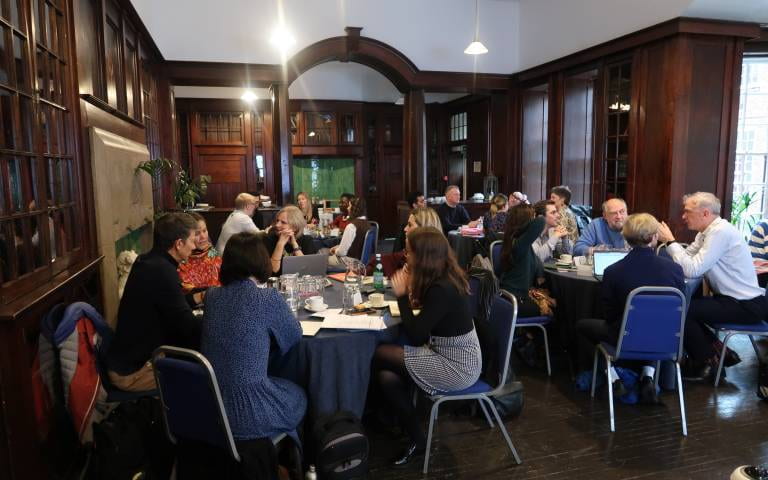Helping social science undergraduates to navigate their first piece of qualitative research
By Blog Editor, IOE Digital, on 20 March 2024

Credit: AS Art media / Adobe
20 March 2024
By Jon Swain
Many social science undergraduate programmes include modules where students are asked to carry out a small piece of qualitative research. This usually takes the form of interviews with real people. Although sample sizes are usually quite small (2-5 people), getting to grips with the resulting data can nevertheless be daunting for a novice researcher.
This blog post outlines the guidance I use with my own BA students, which, they tell me, is a clear and an effective method of showing them how to organise and begin to analyse interview data. The beauty is in its simplicity. Read the rest of this entry »
Who is at risk of early menopause?
By IOE Blog Editor, on 4 March 2024

Several factors as far back as childhood can be connected to experiencing an early menopause. View the full infographic (Image: Centre for Longitudinal Studies).
4 March 2024
By Darina Peycheva, Alice Sullivan, Meghan Rainsberry and Ryan Bradshaw
The age a woman reaches the menopause is strongly influenced by her genes, but our research suggests that non-genetic factors can also play a role.
Menopause usually occurs between 45 and 55 years of age. If menopause occurs before the age of 45, it is referred to as ‘early menopause’. Our research looks specifically at early menopause that occurs spontaneously, but menopause can also occur following certain surgeries, medications or other treatment. Read the rest of this entry »
Faltering progress: reflections on Action for Climate Empowerment at COP28
By Blog Editor, IOE Digital, on 20 February 2024

International Youth Climate Delegate Program group at COP28, Dubai. Photo by COP28 / Anthony Fleyhan.
20 February 2024
By Kate Greer and Nicola Walshe
COP28 news coverage focused attention on an agreement to transition away from fossil fuels, plus funding for ‘loss and damage’, but what happened in the UNFCCC Action for Climate Empowerment (ACE) workstream concerned with engaging all citizens in climate change action through education and public participation? Read the rest of this entry »
A Baccalaureate Curriculum
By Blog Editor, IOE Digital, on 1 February 2024

Secondary school students in a drama class. Phil Meech for UCL.
1 February 2024
By David Scott
This blog post is not just an opinion piece but also, I hope, a reasoned argument about the curriculum, and for the introduction of a ‘true’ Baccalaureate into the English Education System – with all the implications this has, not just for the 16-19 phase, but for the system as a whole. A more detailed account of this argument is available in my edited book, On Learning: volume 2, Philosophy, Concepts and Practices, which is free to download at UCL Press.
The call for England to adopt a broader curriculum for the 16-19 phase is one that has surfaced intermittently. It is echoed in the government’s plans to introduce an ‘Advanced British Standard’ Read the rest of this entry »
Holocaust Memorial Day: why historical knowledge and conceptual understanding are key to engaging with the fragility of freedom
By Blog Editor, IOE Digital, on 25 January 2024

The stone columns of the UCL Wilkins building lit in purple to mark Holocaust Memorial Day.
25 January 2024
By Rebecca Hale
Every year, on the 27th January, people come together to mark Holocaust Memorial Day (HMD). They participate in events to remember the millions of people murdered during the Holocaust and in other genocides.
For many schools, HMD provides an important opportunity to teach students about the Holocaust, supporting them to reflect on its contemporary significance, and providing a space for young people to honour the memory of the victims. Indeed, in the UCL Centre for Holocaust Education’s most recent national study, 74.5% of teachers reported that their school marked HMD as part of their teaching about the Holocaust. Read the rest of this entry »
Rising school absence: what do we know and what can we do?
By Blog Editor, IOE Digital, on 16 January 2024

Credit: Smolaw11 / Adobe.
16 January 2024
By Lindsey Macmillan and Jake Anders
The start of 2024 has seen a renewed focus on persistent absenteeism from school, with the Secretary of State for Education announcing a major national drive to improve school attendance, and the Shadow Secretary of State for Education laying out Labour’s plans to ‘rebuild the broken relationship between schools, families and the Government’. Yet this is not a new problem: the issue of persistent absenteeism has been looming since schools returned to ‘normal’ after the COVID-19 pandemic.
Everyone agrees that the rise in pupil absence since the pandemic is of significant concern. But the causes and what we should do about this are much less clear. Read the rest of this entry »
More young people are interested in teaching than we might think: we need action on both recruitment and diversification
By Blog Editor, IOE Digital, on 20 December 2023
 20 December 2023
20 December 2023
Earlier this month, the Department for Education (DfE) posted its 2023/24 Initial Teacher Training Census, revealing that only half the required secondary postgraduate teachers needed were recruited into teacher education in the last year. This marks the tenth time in the last eleven years that England’s overall new teacher recruitment targets have been missed. These dire statistics on recruitment have made headlines and call into question the effectiveness of policies to address this problem.
So, do people really not want to become teachers? My doctoral research indicates that it’s not all doom and gloom. I found that many more young people are more open to pursuing teaching than is indicated in teacher recruitment data. However, as for the profile of the existing teacher workforce, those who think they might want to teach most often identify as White and as women. With this in mind, it seems that recruitment efforts should not only focus on increasing the number of teachers, but more work must be done to make teaching attractive and accessible to those who are underrepresented in the current workforce. Read the rest of this entry »
Who are climate activists and why do they risk so much?
By Blog Editor, IOE Digital, on 7 December 2023

Credit: Alisdare Hickson via CC BY-SA 2.0.
7 December 2023
By Lisa Fridkin and Katie Quy
Polling in the UK suggests growing public concern about climate change. For some of us, this concern may feel relatively abstract; we puzzle through, trying to make sense of ever more common stories – or direct experience – of heatwaves, flooding and loss of habitats, set against a dogged focus on economic growth and the issuing of new licences for oil and gas (when the IPCC tells us cutting fossil fuel use is essential). Controversies surrounding the COP28 presidency may have generated similar confusion. Alongside this, we have mainstream media cultivating a particular and negative stereotype around climate activists and engagement in non-violent direct action (NVDA). Our research, however, shows that these activists are not who the media would have us think they are. Read the rest of this entry »
Action for Climate Empowerment: why this ‘policy glue’ needs a cross-government approach
By Blog Editor, IOE Digital, on 30 November 2023

UCL-convened workshop on Action for Climate Empowerment in the UK, November 2023. Credit Kate Greer, UCL.
30 November 2023
By Kate Greer
Action for Climate Empowerment (ACE) is a workstream of the UN Framework Convention on Climate Change (UNFCCC), discussed previously on this blog, which seeks to engage all citizens in climate action via six areas of activity: education, training, public participation in decision-making, public access to information, public awareness, and international cooperation.
At a recent workshop for people and organizations whose work intersects with ACE, hosted by UCL, the diverse ways in which the ACE policy framework can be made concrete was apparent. The workshop brought together people whose work focuses on (…take a deep breath…): schools, higher and informal education; public engagement through faith communities, museums and the arts; advocacy on behalf of children, youth, people living with disabilities, and non-human species; alongside policy development and research funding. It was described by one participant as a ‘paper clip’ that held a disparate group of people and expertise together for half a day. Building on this metaphor, I wonder whether ACE can be viewed as ‘policy glue’ to hold them together over the longer term. Read the rest of this entry »
The case for an immediate pause and reset in school inspection
By Blog Editor, IOE Digital, on 24 November 2023

Credit: Ashok Sinha / Adobe.
24 November 2023
By Alice Bradbury and Jane Perryman
The current Ofsted inspection system for schools has generated such a level of mistrust, even perceptions of ‘toxicity’, that it needs extensive reform, and to be paused immediately while an alternative system is developed. This is the overarching conclusion of the Beyond Ofsted Inquiry, for which we provided the research.
We have spent several months collecting data from teachers, school leaders, parents, governors and key policymakers about the impact of Ofsted and options for reform, through a survey and series of focus groups. Based on this feedback and a review of the wider evidence base, the inquiry report proposes Read the rest of this entry »
 Close
Close


